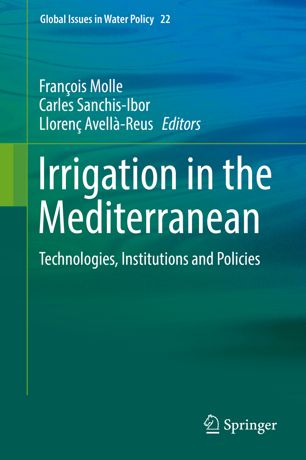

Most ebook files are in PDF format, so you can easily read them using various software such as Foxit Reader or directly on the Google Chrome browser.
Some ebook files are released by publishers in other formats such as .awz, .mobi, .epub, .fb2, etc. You may need to install specific software to read these formats on mobile/PC, such as Calibre.
Please read the tutorial at this link: https://ebookbell.com/faq
We offer FREE conversion to the popular formats you request; however, this may take some time. Therefore, right after payment, please email us, and we will try to provide the service as quickly as possible.
For some exceptional file formats or broken links (if any), please refrain from opening any disputes. Instead, email us first, and we will try to assist within a maximum of 6 hours.
EbookBell Team

4.1
40 reviewsMediterranean irrigation is diverse due to, among other factors, the relative importance of water in the economy of each country, varied levels of aridity, heterogeneous levels economic, social and technological levels of development, and differences in political and social organization. However, most of the Mediterranean countries face similar problems to meet their water demands because of the scarcity and variability of renewable resources, growing water requirements from non-agricultural sectors, increasing environmental concerns related to water quality and environmental degradation, a social demand for larger public participation, and important technological changes. The time has come to reconsider the “not one drop lost to the sea” philosophy of yesteryears largely and to 'live within limits'.
This book focuses on eight selected countries (Tunisia, Morocco, Spain, France, Italy, Turkey, Israel and Egypt) and provides a comparative perspective that both thoroughly explores their specificities and identifies the common challenges faced by the irrigation sector in these countries. The book has been written at a critical moment, when the continued application of a supply-side water management model is revealing its unsustainable nature in numerous places; when significant technological changes are taking place in the irrigation sector; when new forms of management and governance are widely held as badly needed; and finally, when climate change is compounding many of the difficulties that have characterized irrigation policies and practices in the past decades.
This complicated future context makes Mediterranean irrigation face various political dilemmas on water management, raising social tensions, triggering territorial and land conflicts, and stimulating new technological developments. This book provides a timely analysis of the particular trajectory of eight Mediterranean countries in these uncertain transformations, and attempts to identify the best strategies to avert or overcome future risks.